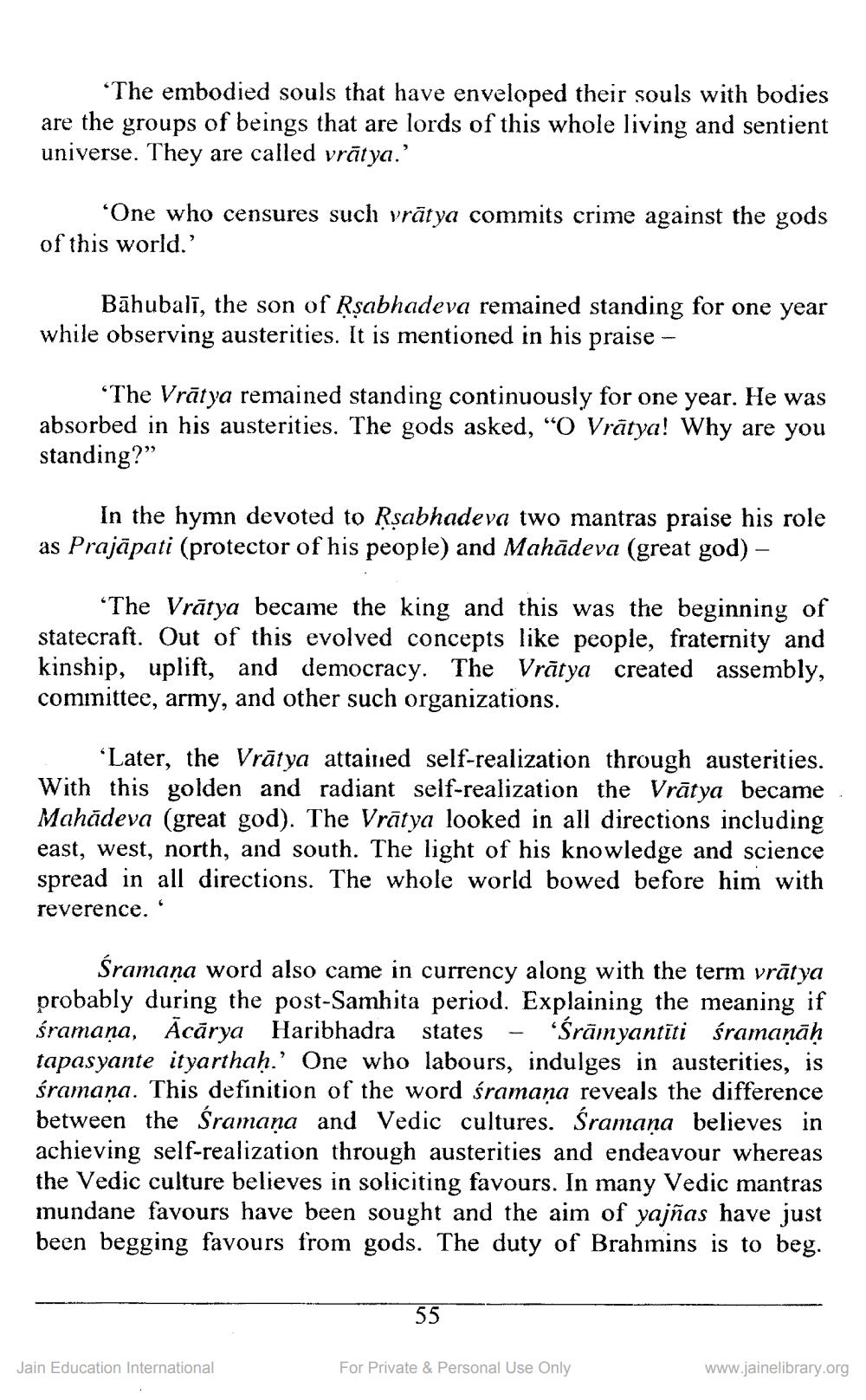________________
“The embodied souls that have enveloped their souls with bodies are the groups of beings that are lords of this whole living and sentient universe. They are called vrātya.'
'One who censures such vrātya commits crime against the gods of this world.
Bāhubalī, the son of Rşabhadeva remained standing for one year while observing austerities. It is mentioned in his praise -
“The Vrātya remained standing continuously for one year. He was absorbed in his austerities. The gods asked, “O Vrātya! Why are you standing?”
In the hymn devoted to Rsabhadeva two mantras praise his role as Prajāpati (protector of his people) and Mahādeva (great god) -
“The Vrātya became the king and this was the beginning of statecraft. Out of this evolved concepts like people, fraternity and kinship, uplift, and democracy. The Vrātya created assembly, committee, army, and other such organizations.
“Later, the Vrātya attained self-realization through austerities. With this golden and radiant self-realization the Vrātya became Mahādeva (great god). The Vrātya looked in all directions including east, west, north, and south. The light of his knowledge and science spread in all directions. The whole world bowed before him with reverence.
Śramana word also came in currency along with the term vrātya probably during the post-Samhita period. Explaining the meaning if śramaņa, Ācārya Haribhadra states - 'Śrāmyantīti śramaņāḥ tapasyante ityarthaḥ.' One who labours, indulges in austerities, is śramaņa. This definition of the word śramaņa reveals the difference between the śramana and Vedic cultures. śramaņa believes in achieving self-realization through austerities and endeavour whereas the Vedic culture believes in soliciting favours. In many Vedic mantras mundane favours have been sought and the aim of yajñas have just been begging favours from gods. The duty of Brahmins is to beg.
55
Jain Education International
For Private & Personal Use Only
www.jainelibrary.org




